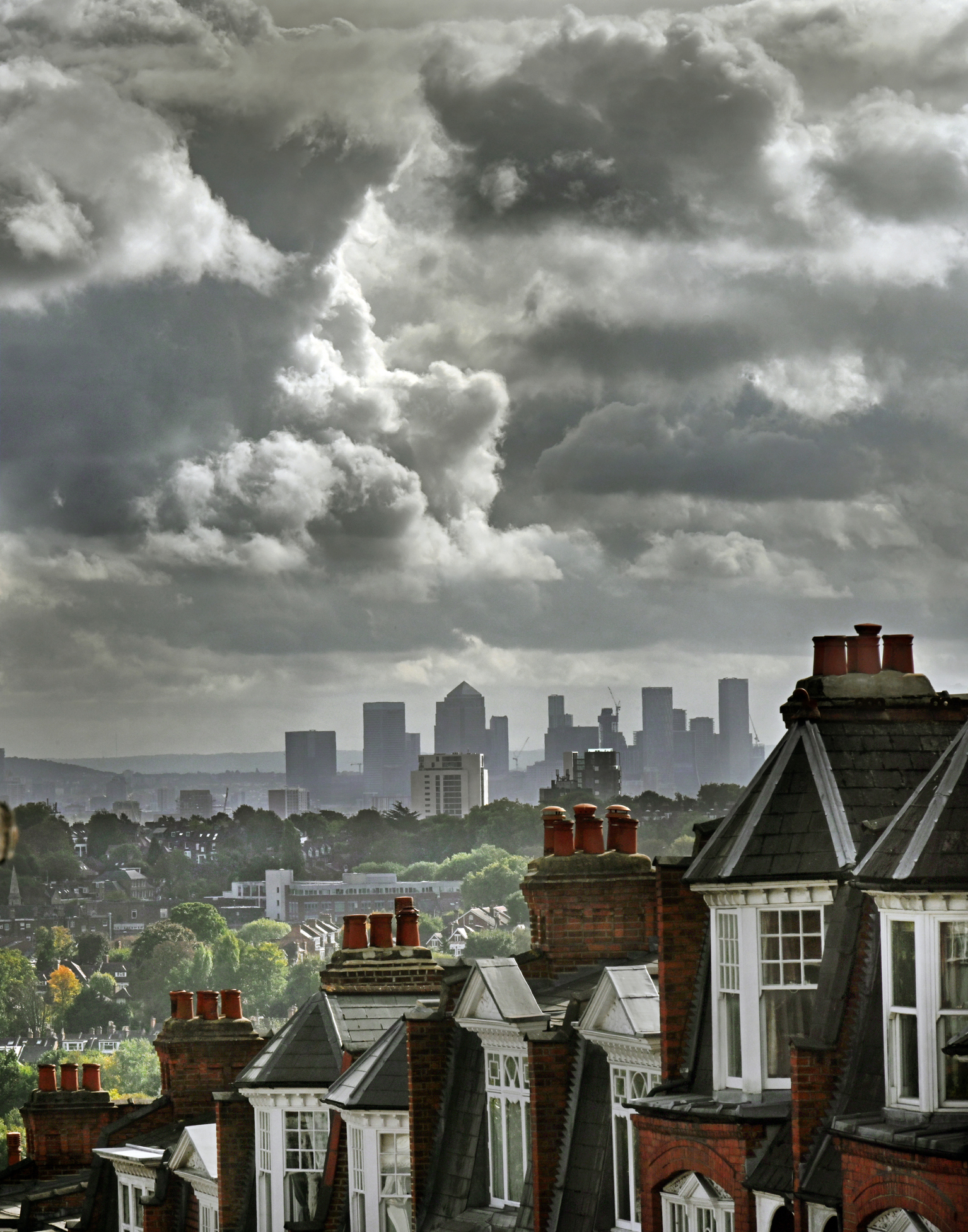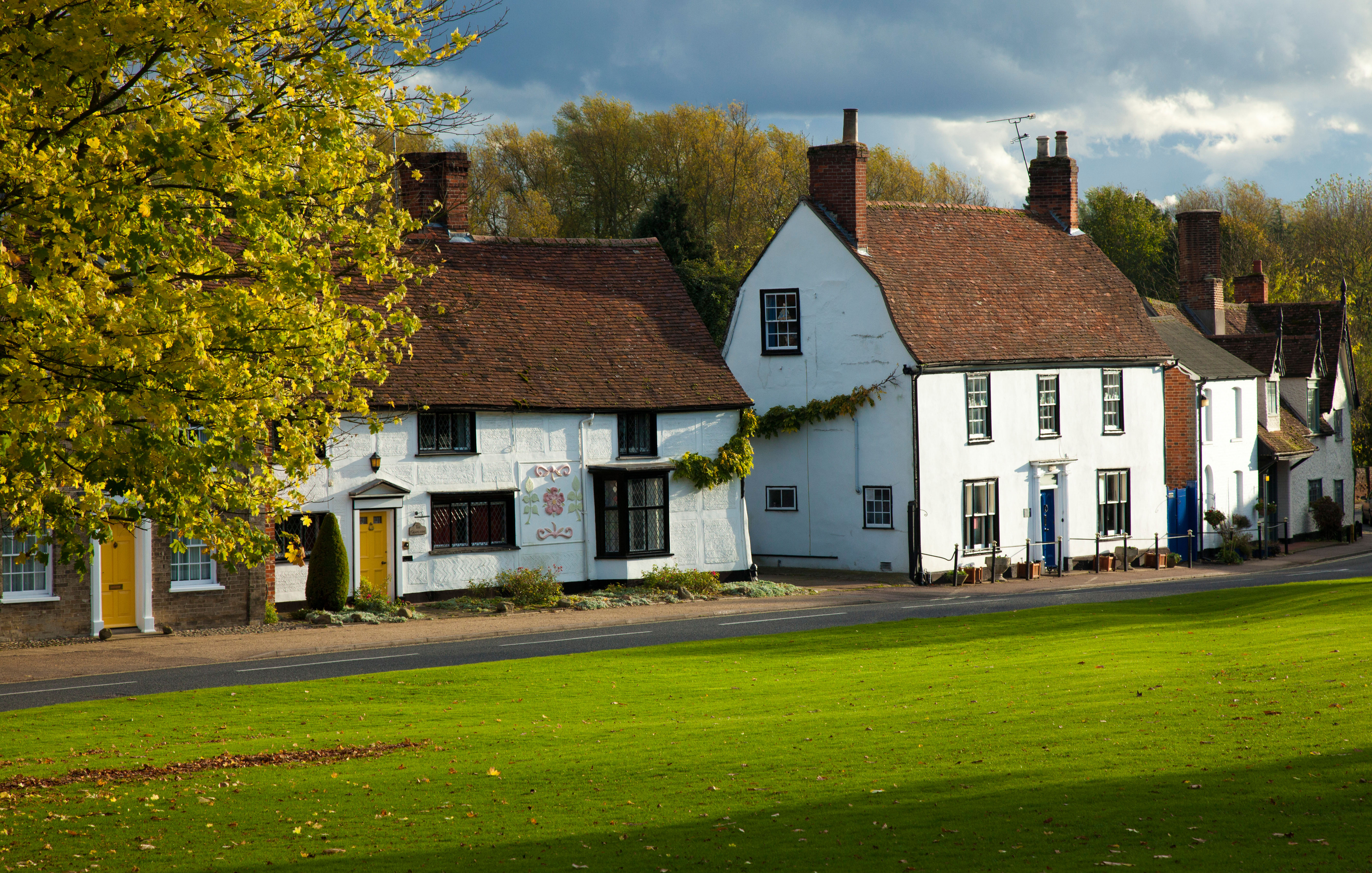Property Talk: ‘Storm clouds’ gather on the horizon for house prices
The housing market is showing signs of improvement but ‘stubbornly high’ inflation is expected to take its toll, Annabel Dixon discovers in RICS latest survey.


Exquisite houses, the beauty of Nature, and how to get the most from your life, straight to your inbox.
You are now subscribed
Your newsletter sign-up was successful
It felt like the housing market had a slight spring in its step recently, didn’t it? Monthly house prices reported by the likes of Halifax and Nationwide appeared to climb at one point or another. Mortgage approvals picked up, according to the Bank of England. And some market commentators voiced cautious optimism.
But a well-respected monthly sentiment survey of chartered surveyors this week suggests that storm clouds are gathering (again).
First, let's focus on the positive trends. The Royal Institution of Chartered Surveyors (RICS) UK market survey for May reveals that new buyer demand and agreed sales metrics were the least negative they had been in a year.
Meanwhile, the survey’s new sales instructions reading shifted into positive territory for the first time since early 2022.
And while national house prices still dropped, downward pressure continued to soften. RICS adds: ‘Looking ahead, the national house price expectations series (for the coming 12 months) now sits in broadly neutral territory’.
In short, there are signs of improvement in the housing market. But further interest rate rises are expected, threatening to put a dampener on things.
RICS senior economist, Tarrant Parsons, explains: ‘It seems storm clouds are gathered, with the UK's stubbornly high inflation likely undermining the recent improvement in activity by prompting the Bank of England to take further action through interest rate rises, leading to higher mortgage rates and ultimately reducing affordability and buyer demand.’
Exquisite houses, the beauty of Nature, and how to get the most from your life, straight to your inbox.
Many banks and building societies are already introducing products with higher interest rates, he adds.
Housing market data and views naturally vary between different reports and commentators — and there are significant variances in the various house price indices. But some of the broader themes and observations emerging at the moment are not dissimilar.
Halifax and Nationwide have also warned this month of the knock-on effect of inflation on the housing market.
‘With consumer price inflation remaining stubbornly high, markets are pricing in several more rate rises that would take base rate above 5% for the first time since the start of 2008. Those expectations have led fixed mortgage rates to start rising again across the market,’ says Kim Kinnaird, Halifax Mortgages director, in the lender’s latest house price index.
‘This will inevitably impact confidence in the housing market as both buyers and sellers adjust their expectations, and latest industry figures for both mortgage approvals and completed transactions show demand is cooling. Therefore further downward pressure on house prices is still expected.’
As more financial pain kicks in, house prices are expected to fall by around 5% this year, according to Knight Frank’s head of UK residential research, Tom Bill.
‘That said, wage growth is one of the factors that should limit the scope of any declines, alongside low unemployment, record-high levels of housing equity, cash sales and longer mortgages,’ Bill adds.
Nationwide chief economist, Robert Gardner, also highlights the impact that people’s wages can have, explaining that ‘healthy rates of nominal income growth, together with modestly lower house prices, should help to improve housing affordability over time’.
Commenting in Nationwide’s most recent house price index, Gardner reckons that a ‘relatively soft landing remains the most likely outcome since labour market conditions remain solid and household balance sheets appear in relatively good shape’.
Here’s hoping.

Credit: Alamy
Property Talk: Why the price of farmland is set to climb again in 2023
Residential property prices have fallen for five months in a row, but prices for farmland and woodland look likely to

Property Talk: The happiest places to live in Britain (and what you could afford if you moved there)
When I was going to St Ives, I met... lots and lots of contented people, apparently, as the Cornish seaside

Property Talk: The top 10 places in the UK where first-time buyers won't have to compromise (well, according to this list at least)
A new piece of research looks at the best places for first-time buyers to get on the property ladder — but

Credit: Alamy
Property Talk: What the Bank of England's interest rate rise means for the property market
The worst-kept secret in the world of finance was revealed on Thursday as the Bank of England raised interest rates

